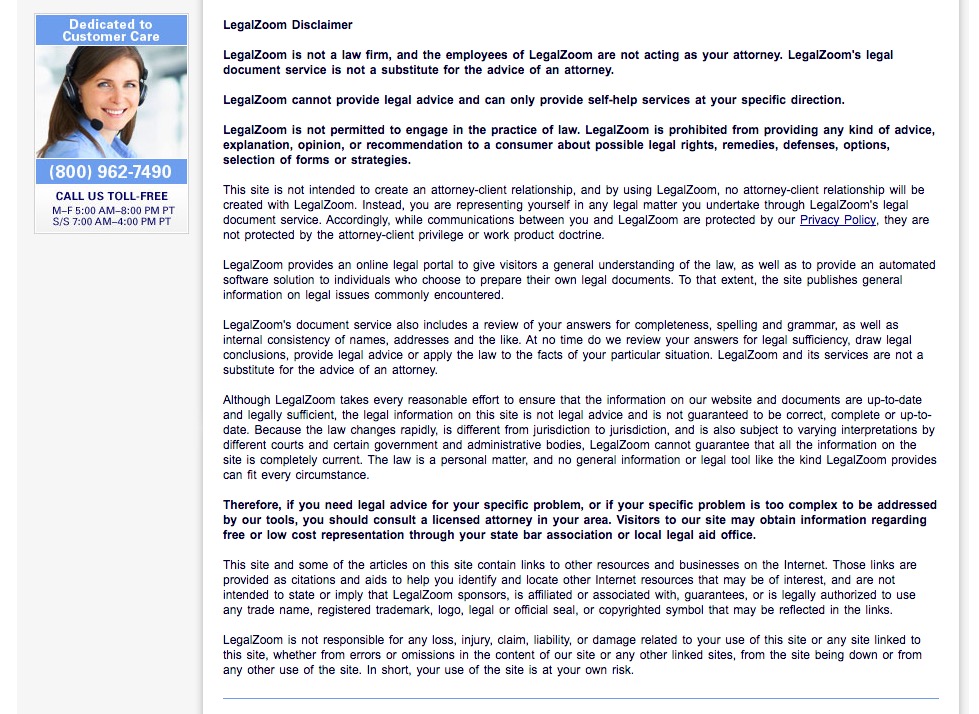|
Most of us go to a doctor when our bodies aren’t feeling well, a dentist when our teeth hurt, a mechanic when there is a problem with our car, and an accountant for our taxes. Some of these things can be done by yourself, but it probably wouldn’t be the best idea. Doing your own estate plan can be simple, but it can also have some very costly ramifications if done improperly. That amount of money or time you may be saving initially really may not be worth it on the long run. Do-it-yourself document preparation websites are certainly attractive, especially if their prices are substantially lower than attorney’s fees. It’s also seems convenient at first as people don’t have to even step out of their house to meet anybody, but sit at their home computer and log in. But would you trust an online company to gather enough information about your unique situation, your family, and your financial assets to prepare documents that control how those assets are distributed after you pass away or how to handle your affairs if you become incapacitated and no longer able to clarify your intentions? Companies, such as LegalZoom or RocketLawyer, lure people in by giving them a false sense of security. They assure you that once you’ve completed their questionnaire and a plan is drafted and signed, you can set it aside and not have to worry about the future anymore. These services want to make you believe that estate planning and implementing your life goals are as easy as filling in the blanks on a standardized form. And they try to convince people that the advice of an attorney is simply not necessary. However, DIY estate planning sites are unreliable and one should proceed with caution because more harm may result than good. Let’s take LegalZoom as an example. Its disclaimer speaks for itself about its inadequacy. Here is a snapshot of their disclaimer found online and below are the reasons why these preparation services are unreliable. 1) LegalZoom is not your attorney and cannot give legal advice. In the beginning of its disclaimer, it states in bold: “LegalZoom is not a law firm, and the employees of LegalZoom are not acting as your attorney. LegalZoom’s legal document service is not a substitute for the advice of an attorney. LegalZoom clearly states that it is not a law firm, cannot give legal advice, and is not acting as your attorney. It even states that it’s prohibited from providing any advice or recommendation to a consumer. In addition, LegalZoom does not review your answers for legal sufficiency, draw legal conclusions, provide legal advice or apply the law to the facts of your particular situation. 2) There is NO attorney-client privilege or relationship. LegalZoom also states in its disclaimer that NO attorney-client relationship will be created. This site is not intended to create an attorney-client relationship, and by using LegalZoom, no attorney-client relationship will be created with LegalZoom. Instead, you are representing yourself in any legal matter you undertake through LegalZoom's legal document service. Accordingly, while communications between you and LegalZoom are protected by our Privacy Policy, they are not protected by the attorney-client privilege or work product doctrine. Attorney-client privilege means that any and all communication between the client and attorney is protected. However, LegalZoom states that there is NO attorney-client relationship between you and LegalZoom. Any information that is submitted through LegalZoom is not protected and may be provided to other attorneys and employees for the "purpose of determining your need for legal services." Therefore, attorneys and employees, whom you have never met or spoken to, have access to your private and confidential information. Are you comfortable with that? 3) Mistakes may not be discovered until it’s too late. So many variables come into play in drafting an estate plan and without proper feedback, your wishes may not be fully implemented and consequently have unintended results. People may not know about mistakes in their will or living trust until it’s too late. Why? Because if a serious legal mistake is made, you’ll never know because it won’t become apparent until you become incapacitated or pass away. Errors in a will, for example, are revealed after death, when it’s too late to change the document or ask the deceased what his or her intentions were. Initially, LegalZoom can give you a peace of mind. But you don’t really know if there are problems or mistakes until after you are gone, and these mistakes could end costing you and your family more money than what you thought you may have been saving. 4) Using DIY forms can actually be more costly. These forms can create a false sense of security, but mistakes may not become evident until it's too late. And the people who are left to handle the mistakes are usually the people that were supposed to be protected. If there are legal mistakes in your estate plan, you or your successors may have to deal with the costs of fixing it. Money spent now could be spent many times over to address legal issues that were not discovered when using the DIY preparation services. Creating your estate plan and legacy through DIY services could lead to untold errors and problems that may require expensive legal services and litigation on top of the frustration, confusion, grief that your loved one is going through. This is exactly what a properly drafted estate plan is supposed to avoid. So it may be worth it to spend a little more to have your planning done right. Your loved ones are worth it. 5) The law changes Legal Zoom clearly states in its disclaimer that “Because the law changes rapidly,…LegalZoom cannot guarantee that all the information on the site is completely current.” Laws constantly change and LegalZoom even admits that it cannot guarantee that the information is correct, complete or up-to-date. 6) LegalZoom only provides general information. The law is a personal matter, and no general information or legal tool like the kind LegalZoom provides can fit every circumstance. It states: LegalZoom provides an online legal portal to give visitors a general understanding of the law, as well as to provide an automated software solution to individuals who choose to prepare their own legal documents. To that extent, the site publishes general information on legal issues commonly encountered. LegalZoom provides an “automated software solution to individuals” and publishes “general information on legal issues commonly encountered.” But every family has their own different dynamics, and it is difficult and nearly impossible for an automated software solution to address any issues or concerns in each family’s circumstance. It cannot provide information that would be tailored to each family’s specific and unique needs. It can only offer guidance based on a majority of its customers answering questions a certain way, but that doesn’t necessarily make it applicable to an individual’s unique situation.
Is a Do-It-Yourself estate plan for you? Yes, and no. It may be appropriate to do so if you have a modest estate in your name only and you simply only wish to leave your assets to your closest surviving relative. But for someone with an even slightly more complicated situation, creating a Will or a Living Trust online creates risks that could have lasting financial and emotional consequences on those who matter most. What was supposed to be easy and less burdensome for your loved ones, can be more difficult and expensive in administering your estate and could lead to probate litigation.
2 Comments
|
About the AuthorChristine Chung, Esq. Archives
March 2020
Categories
All
|
|
Home | About Us | Attorneys | Virtual Services | Practice Areas | FAQs | Contact Us
© 2018 Law Offices of Christine Chung. All rights reserved. Disclaimer/Privacy Notice |



 RSS Feed
RSS Feed

